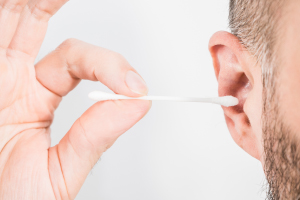

Global handwashing partnership first launched Global Handwashing Day in 2008. Since then, it is celebrated every year on October 15 around the world. The aim of celebrating this world hand wash day is to remind us how important it is to keep our hands clean.
On Handwashing Day, many programs and campaigns are held in various organisations as well as on social media platforms to promote the importance of handwashing and spread awareness about health and hygiene.
The first time when Hand Hygiene Day was celebrated, around 120 million children practised washing their hands in 70 countries.
If you see your hands under a microscope, you will notice that there are thousands of germs living on your skin. Thus, the most effective way to stop these germs from spreading and creating health-related issues is to maintain hand hygiene by washing your hands with warm water and soap frequently.
What is the importance of handwashing?
Germs can enter your body even if you are just touching someone’s hand, any object, or any kind of surface. These germs are impossible to notice with clear eyes as they are microscopic. They can be only observed when they are under a microscope. Because of this, such bacteria and germs can easily enter our bodies and can harm our health. However, it is not tough to prevent these infectious agents from affecting our body. All we need to do is maintain hand hygiene by washing our hands from time to time.
These viruses and bacteria often cause respiratory infections like cold, cough, fever, influenza, and gastrointestinal infections like salmonellosis.
Cleaning your hands frequently with water and soap can help to prevent the germs from spreading. Some respiratory infections and gastrointestinal infections can lead to further complications. People with low immune systems, elderly people, and children are more prone to catching such infections.
Following are some more reasons that highlight the importance of handwashing frequently:
- We touch our noses, mouths, and eyes all the time – this allows the infectious agents that are present in our hands to get into our bodies easily and cause health problems.
- Bacteria from our unclean hands could get into drinks and foods while preparing or consuming foods.
- Bacteria from our hands can transfer to other things like toys, books, papers, plates, handrails, etc. which later transfers to someone else who touches those objects.
- Hence, one must focus on hand hygiene and wash every time they touch an object as it might be contaminated with bacteria.
What are the Dos and Don’ts of Washing Hands?
Dos of maintaining hand hygiene:
You need to always wash your hands:
- After using the toilet, changing nappies, before eating, and before or during preparing cooking.
- While handling cooked or raw foods.
- After using a handkerchief or tissues.
- After coughing, sneezing, and blowing your nose.
- After touching animals or pets.
- After treating a wounded area or touching a sick person
- After touching public doors, switches, etc.
- After leaving a crowded area.
- Before and after wearing or taking off your contact lenses.
Don’ts of maintaining hand hygiene:
- Make sure to wash your hands before touching your nose, eyes, or mouth as the bacteria can enter your body using these passages.
- While coughing or sneezing, do not cover your face with bare hands. Make sure to use a tissue or handkerchief.
- Do not rub your hands on your clothes after sneezing or coughing.
Benefits of Washing Hands and maintaining hand hygiene
The importance of handwashing cannot be emphasized enough. Germs, such as viruses and bacteria, are microscopic and they tend to reside on every type of object like shopping carts, smartphones, laptops, combs, gym equipment, and even your toothbrush.
A few common bad habits such as touching the toilet seat, touching raw meat, sneezing and coughing, touching pets, etc. can lead to direct contact with those bacteria and germs. These germs such as E. coli, salmonella, clostridium difficile, and MRSA are capable enough to harm your health.
However, proper hand washing is the easiest and most effective way of preventing these germs from spreading. Washing your hands often can remove dirt as well as infectious agents from your hands, which can be transmitted to others. This way, it helps keep your environment clean and safe.
Frequent hand washing can automatically help you avoid getting sick. This further helps keep our immune system active and ensures that we don’t get sick more often. Handwashing can also treat those bacteria that are difficult to control or are resistant to antibiotics.
How to Wash Your Hands Properly?
As significant as making people aware of the importance of handwashing is spreading awareness of the correct handwashing techniques:
- The first thing you need to do is wet your hands completely, preferably with running water.
- Once they are wet, apply soap all over your hands and rub them against each other thoroughly.
- Do not forget to scrub your fingernails, fingertips, and wrists as well.
- Make sure to scrub your wrists and hands for 20 seconds at least.
- Wash your hands thoroughly with clean water.
- You can use a towel to dry your hands or you can also air dry your hands.
Conclusion
Hand washing is one of the simplest yet most effective things you can do to keep yourself safe and healthy. We tend to come in contact with a lot of germs and bacteria throughout the day which increases our chances of getting infected which can cause serious health-related issues.
If one does not understand the importance of handwashing, it can lead to many serious health issues. To prevent this, we always need to keep our hands clean. Such habits are extremely important to improve your health and promote a safe environment. Let’s take this Global Handwashing Day as a reminder.




